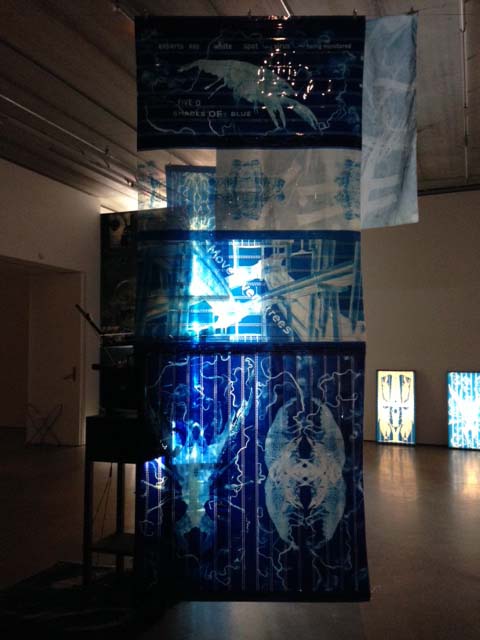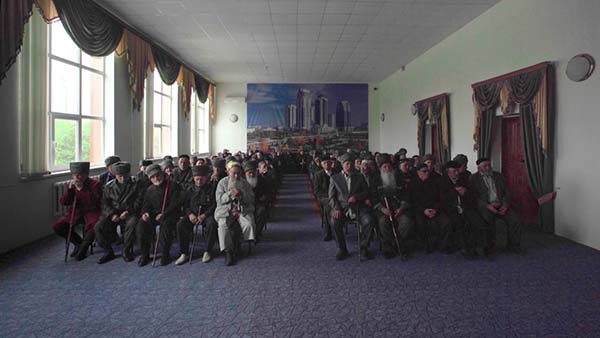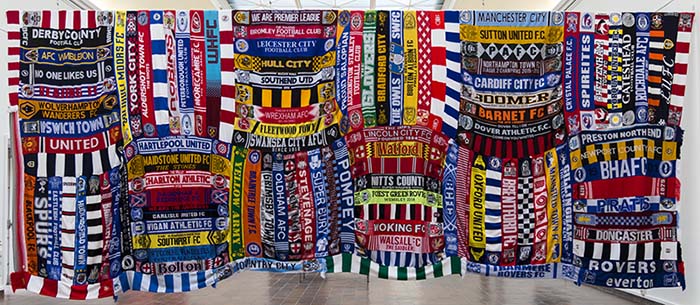It’s not hard to appreciate A Fixed, Formal Arrangement, for this segmented, creative work doesn’t pretend to be anything that it’s not; it hopes that you aren’t pretending to be anything less than yourself when reading it. It’s best to be frank with one another, you and this text, if you want to get to the meat of it, if you want to be more comfortable with solitudes, strangeness, unfinished dialogues, eye holes into panoramas of the beautiful and unfinished life, found among the confused and questioning, found among what comes natural if even unconventional.
Allison Carter is a calculating scientist of the comma; she has found that this small protrusion in a thought’s trajectory can just as easily connect you to the matter as it can distance you from it. A Fixed, Formal Arrangement investigates methods in which a writer can connect spaces, places and people that aren’t easily connected via brief flash segments (and writerly intuition)—spaces that you don’t usually assign value or substance to: public garages, a wall, the space near someone’s bed instead of someone else’s. Carter also dissects a type of time that isn’t easily definable: ”your spare time.” So many choices are given: ”German food, fuck, blue jeans, every single new song I hear, Fuck, even just thinking about poker, even just thinking about bonfires.”
Sometimes written in first person (”I arrive late for dinner, mix up the location, can’t find the schedule, can’t find what I’m doing written down,”), other times just observing (”Out the window, a sole feral cat, only seldom, only fine, mewing over in black patio,”), and sometimes directed towards you (”A fifth wall, an extra light source, you can never be alone, even just thinking about being alone, about sleeping in the bald, bright, a dry talon, its scrape, who isn’t gasping, who isn’t even thinking about gasping,”), this text rejects the notion that it has to be fixed or formal on a page. It is content, at times, with being unknowable, comfortable with not knowing, or even more off-putting, forgetting something once held on high. Carter writes in her Garages section:
She told me not to look but to tell her the weather. I said, ”It was warm.” She said, ”Sure, the kind of heat that eats its own oxygen to keep burning.” I had said it the best way I knew. Finally she summed it up for me by pointing out two kinds of nights. She said, ”This is the kind of you will never forget—you will also lose all of the details.” She was right about my forgetting but didn’t know about its being nothing special.
And similar to the weather, Carter changes perspective through divisive textual strategies, pushing you into unknown thoughts of a barrage of simultaneously familiar yet alienated individuals; you are expected to handle these awkward intimacies. It is helpful to adapt to surfacing meta-inquiries: ”even just thinking about thinking.” There is a repeating theme throughout regarding the weather—the reader might become concerned for their own weather or what it means to be concerned with the weather.
When in doubt, talk about the weather, or so we’re told and made to believe. The weather and thoughts about it are usually associated with safe conversational terrain, but what happens when notions of the weather become unsafe for the living, what happens when safety nets become unreliable? Carter’s text possesses a sense of urgency and panic at moments, and she writes: ”’I keep going out, there is no weather,’ double face, a coldness, irregular split breathing, ’I keep going out, there is no weather,'”—what follows one’s realization that there is no weather? Rather, after an alarm stops, what noise remains after the ringing in one’s head fades? Carter is concerned with aftermaths, rubble, remainders, memories and indiscernible ways to construct futures through fragments.
The reader might occasionally probe for clarity, regarding relationships between this arrangement’s individuals. The ambiguity associated with the ”husband” contributes to the reader’s estrangement from such obvious roles related to present-day marriage and supposed connubial bliss. This ”husband” oddity adds a slight queerness to Carter’s creation, somewhat stemming from the careening between acceptance and rejection between being in love, being alone and being in love when being alone. A recurring question was: who is this husband? Who do we expect this husband to be, who do we want as a husband and what does Carter’s sense of the word really signify? Who deserves such a title? And if no one does, who are we to decide that a husband is nothing attainable, nothing to be acquired, or more simply: nothing? To quote Carter in response to these inquiries, ”’Maybe we should consult with a third party,’ suggests my husband, coherently, really straight arrow, articulate and through and through,”—maybe.To see the review in context, click here.








